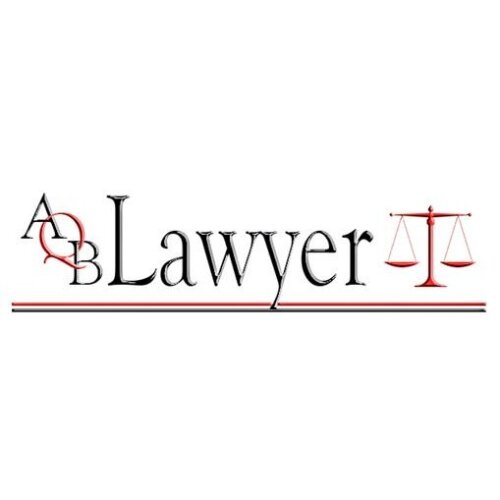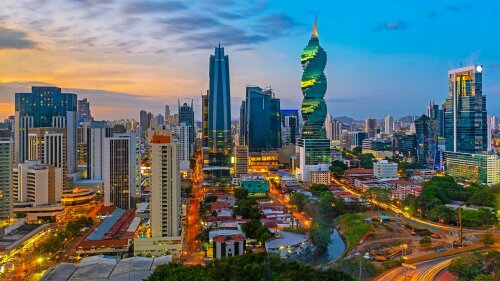Best Juvenile Law Lawyers in Panama
Share your needs with us, get contacted by law firms.
Free. Takes 2 min.
Or refine your search by selecting a city:
List of the best lawyers in Panama
About Juvenile Law in Panama
Juvenile Law in Panama is a specialized area of law that deals with individuals under the age of 18 who are involved in legal matters. This includes issues such as juvenile delinquency, child protection, and the rights of minors. The legal framework aims to provide minors with the protection and guidance necessary for rehabilitation rather than punishment. Juvenile proceedings are generally not as formal as adult proceedings, and the focus is on the welfare and development of the minor.
Why You May Need a Lawyer
There are numerous situations where you might need legal assistance in the field of Juvenile Law in Panama:
- If a minor is accused of committing a crime, a juvenile lawyer can help navigate the juvenile justice system, providing representation and advocating for the minor's rights.
- In cases of child welfare concerns, such as abuse or neglect, a lawyer can help protect the child's interests and ensure the appropriate measures are taken.
- Family disputes that affect minors, such as custody battles or parental rights terminations, may require legal expertise to ensure the child's best interests are prioritized.
- For matters involving the adoption process, legal guidance can assist in navigating the regulations and ensuring compliance with Panamanian law.
Local Laws Overview
The juvenile legal system in Panama operates under the principles set out in the Code of Childhood and Adolescence (Código de la Niñez y la Adolescencia). Key aspects include:
- Age of Criminal Responsibility: In Panama, children below the age of 12 are not held criminally responsible. Special provisions apply to those between 12 and 18.
- Rehabilitation and Protection: The focus of juvenile laws is on rehabilitation, education, and integration of the minor into society, with detention used as a last resort.
- Confidential Proceedings: Juvenile cases are typically confidential to protect the identity and privacy of the minor involved.
- Legal Representation: Minors have the right to legal representation and should be informed of their legal rights and procedures.
Frequently Asked Questions
What age qualifies someone as a juvenile under Panamanian law?
In Panama, individuals below the age of 18 are considered juveniles.
Can a minor be tried as an adult in Panama?
Under specific circumstances, legal measures may allow older minors to face adult charges, but the standard practice involves handling cases within the juvenile system to provide rehabilitation opportunities.
What types of cases fall under Juvenile Law?
Juvenile Law in Panama covers criminal cases involving minors, child welfare cases, custody disputes, and adoption processes.
What is the primary goal of the juvenile justice system in Panama?
The main goal is rehabilitation and social reintegration of minors, focusing on their education, guidance, and protection.
Are juvenile cases held in public courts?
No, juvenile proceedings are confidential to safeguard the minor's privacy and interests.
What happens if a minor is charged with a crime?
They will go through the juvenile justice system, where procedural measures focus on rehabilitation rather than punishment, with assistance from legal counsel.
How does Panama handle repeat juvenile offenders?
The juvenile justice system addresses each case individually, focusing on rehabilitation measures, though repeat offenses can lead to stricter rehabilitation programs.
What rights do minors have when questioned by police?
Minors have the right to legal representation and must be informed of their rights. Any questioning should be conducted in a manner appropriate to their age and understanding.
Can decisions made by the juvenile court be appealed?
Yes, like other court decisions, there is a process for appealing judgments made by the juvenile court in Panama.
Is a lawyer required for juvenile cases?
While not mandatory, having a lawyer is advisable to ensure the minor's rights and interests are fully protected throughout the legal process.
Additional Resources
For more information or assistance, consider reaching out to the following resources:
- Ministerio de Desarrollo Social (MIDES): This government body focuses on child welfare and provides various resources and support services.
- Defensoría del Pueblo: The Ombudsman's Office offers assistance and can guide individuals in navigating juvenile legal issues.
- Bar Associations: Local bar associations can provide referrals to qualified lawyers specializing in Juvenile Law.
- Non-Governmental Organizations (NGOs): Organizations dedicated to children's rights often offer support and advocacy in juvenile legal matters.
Next Steps
If you need legal assistance in the field of Juvenile Law in Panama, consider taking the following steps:
- Identify Your Needs: Clearly outline the issue you're facing to better communicate with legal professionals.
- Seek Legal Advice: Consult a lawyer who specializes in Juvenile Law for guidance tailored to your situation.
- Gather Documentation: Prepare any relevant documents or evidence that may be crucial to your case.
- Attend Consultations: Meet with your lawyer to discuss your case thoroughly and understand the legal processes involved.
- Follow Legal Guidance: Adhere to the advice and strategies recommended by your legal counsel to ensure the best possible outcome.
Lawzana helps you find the best lawyers and law firms in Panama through a curated and pre-screened list of qualified legal professionals. Our platform offers rankings and detailed profiles of attorneys and law firms, allowing you to compare based on practice areas, including Juvenile Law, experience, and client feedback.
Each profile includes a description of the firm's areas of practice, client reviews, team members and partners, year of establishment, spoken languages, office locations, contact information, social media presence, and any published articles or resources. Most firms on our platform speak English and are experienced in both local and international legal matters.
Get a quote from top-rated law firms in Panama — quickly, securely, and without unnecessary hassle.
Disclaimer:
The information provided on this page is for general informational purposes only and does not constitute legal advice. While we strive to ensure the accuracy and relevance of the content, legal information may change over time, and interpretations of the law can vary. You should always consult with a qualified legal professional for advice specific to your situation.
We disclaim all liability for actions taken or not taken based on the content of this page. If you believe any information is incorrect or outdated, please contact us, and we will review and update it where appropriate.
Browse juvenile law law firms by city in Panama
Refine your search by selecting a city.














